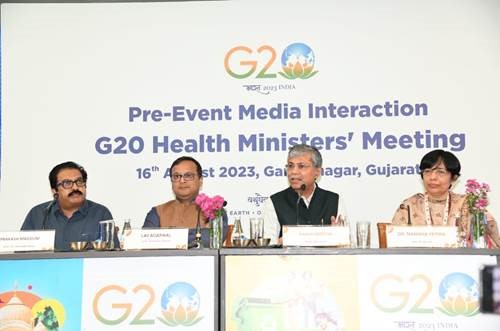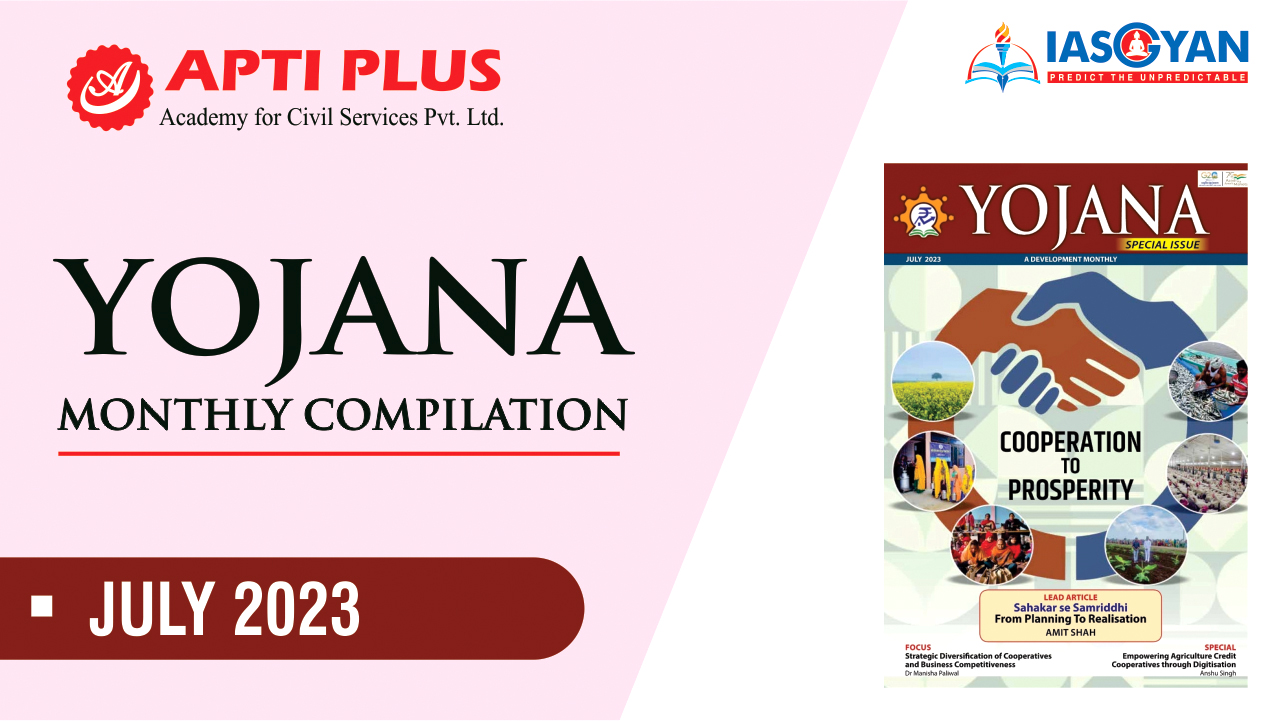Description

Disclaimer: Copyright infringement not intended.
Context
- Recently, the health ministers’ meeting under G20 ended in Gandhinagar.
Details
- India’s G20 presidency has managed to build consensus on setting up an R&D and manufacturing network for
- vaccines,
- therapeutics, and diagnostics,
- setting up a platform for making open-source,
- inter-operable digital solutions readily available
- The third priority on health emergency prevention preparedness and response ended with a commitment to negotiate a legally binding WHO convention, agreement, or other international instrument by May 2024.
- Global Initiative Digital Health — a platform for sharing digital goods and knowledge — was also launched at the meeting. It will have four pillars:
-
- Investment tracker,
- Ask tracker to track technologies the countries need,
- A library of available digital tools, and
- A platform for knowledge-sharing to implement these technologies at scale.
- The war in Ukraine has further adversely impacted the global economy.
- Most members strongly condemned the war and stressed it is causing immense human suffering and exacerbating existing fragilities in the global economy — constraining growth, increasing inflation, and disrupting supply chains.
- Russia rejected its inclusion, contending that it does not conform to the G20 mandate. China also stated that G20 is not the right platform to address security issues and opposed inclusion of the geopolitical-related content.
- The outcome document recognises that there is a need to “collaboratively nurture” an ecosystem of regional research and development and manufacturing for vaccines, therapeutics, and diagnostics, especially in low- and middle-income countries, to support equitable access and distribution even in the face of market failures and regional demands.
- There was specific consensus based on what India has brought on agenda. There are four very clearly defined principles which emerged when it comes to the interim platform.
-
- When an interim platform on medical countermeasures is created it should be based on an inclusive, consultative process — everyone should be consulted. That was the challenge when ACT accelerator (Access to Covid-19 Tools) was made.
- Second, there should be [an] inclusive decision-making process. So you consult what needs to be done. You create a mechanism where everyone has a voice in the decision-making.
- Third, it should have effective representation of low- and middle-income countries in decision-making. It shouldn’t be rich countries making the decision alone; the recipient countries should have a very specific role because they are the people who need it.”
- “Fourth,” “it should be convened by the WHO. In India’s G20 presidency, India was very clear that WHO is a UN-mandated body to work on health.”
- There was also a joint meeting of the health and finance track, attended by Finance Minister Nirmala Sitharaman, which discussed funds to strengthen global health infrastructure. The pandemic fund established during the previous G20 presidency has $2 billion now and proposals for funding have already been initiated.
READ ALL ABOUT G-20
https://www.iasgyan.in/daily-current-affairs/g20-10
https://www.iasgyan.in/ias-gazette-magazine/g-20-summit-key-takeaways
|
PRACTICE QUESTION
Q. India's G20 presidency is inclusive, ambitious, decisive, and action-oriented since the country is taking charge at a time when the world is grappling with geopolitical tensions, economic slowdown and rising food and energy prices.
|

https://indianexpress.com/article/india/g20-health-ministers-meet-ends-with-priorities-of-india-receiving-consensus-8900336/












